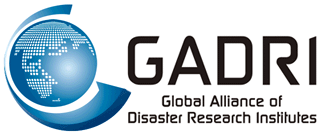- Home
- About
- Events
- Members
- About Members
- Member Institutes
- Algeria
- Argentina
- Australia
- Austria
- Bangladesh
- Brazil
- Bulgaria
- Canada
- China, People's Republic of
- Colombia
- Ecuador
- Egypt
- European Commission
- France
- Germany
- Ghana
- Hong Kong (People's Republic of China)
- India
- Indonesia
- Iran (Islamic Republic of)
- Israel
- Italy
- Japan
- Korea, Republic of
- Lao PDR
- Malaysia
- Mexico
- Morocco
- Nepal
- New Zealand
- Oman
- Phillippines
- Slovakia
- South Africa
- Sri Lanka
- Sudan
- Sweden
- Switzerland
- Chinese Taipei
- Thailand
- Turkey
- United Kingdom
- United States
- Vietnam
- Zimbabwe
- Membership
- Activities
- Resources
- GADRI Archives
- Home
- >
- Members
- >
- Member Institutes
- >
- France
Bureau de Recherches Geologiques et Minieres (BRGM) Orléans Cedex |
|
| Outline BRGM is France's reference public institution for Earth Science applications in the management of surface and subsurface resources and risks. BRGM ("Bureau de Recherches Géologiques et Minières") is the French Geological Survey. The key objectives for BRGM are: i) Understanding geological processes and associated risks; ii) Developing new methodologies and techniques helpful in geosciences; iii) Producing and disseminating data to support the management of soils, subsoils and resources; iv) Delivering the necessary tools for the management of soils, subsoils and their resources, for risk prevention and for policy responses to climate change. BRGM's activities are organized around its 5 key roles: scientific research; support to public policy development; international cooperation; mine Safety and training through "ENAG" school. Scientific research at the BRGM is focused on furthering geological knowledge and understanding surface and subsurface phenomena. The key issue at stake is to meet the challenges of global change. Over 700 BRGM engineers and researchers - two thirds of its staff - are involved in scientific research. Support to public policy development covers all expert appraisals, monitoring and studies such as: surface/subsurface monitoring and disseminating knowledge; methodological studies and synopses to transfer research results to "civil society"; independent expert appraisals; and training or knowledge transfer. International cooperation is also one of the major roles: with over 200 projects each year in more than 40 countries, BRGM works across the globe towards enduring protection for people and resources. BRGM provides know-how and expertise in two main areas: i) protecting people and their environment against natural risks; ii) ensuring the permanence and quality of natural water, mineral and (geothermal) energy resources. Mine Safety, since 2006, has been entrusted to BRGM by the French State. Monitoring and action to prevent risks and pollution arising from mine closures are part of BRGM's missions. BRGM has state delegated responsibility for all mine safety engineering work. Through ENAG, the BRGM disseminates its scientific competences and techniques through a range of courses: higher education diploma courses in the geosciences, through training support and partnerships with higher education establishments; continuing professional training, through some sixty introductory and advanced courses in all geosciences fields.[detail] --> |
|
 |
European and Mediterranean Major Hazards Agreement
|
| Outline An international organisation in Strasbourg which comprises 47 countries of Europe. It was set up to promote democracy and protect human rights and the rule of law in Europe. The EU currently has 28 members that have delegated some of their sovereignty so that decisions on specific matters of joint interest can be made democratically at European level. No country has ever joined the EU without first belonging to the Council of Europe. EUR-OPA Major Hazards Agreement is a platform for co-operation in the field of major natural and technological disasters. Its field of competence covers the major natural and technological disasters - knowledge, prevention, risk management, post-crisis analysis and rehabilitation.
[detail] --> |
|


